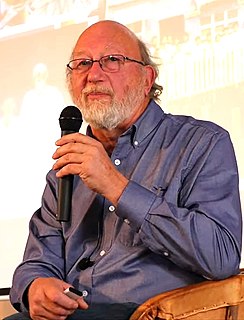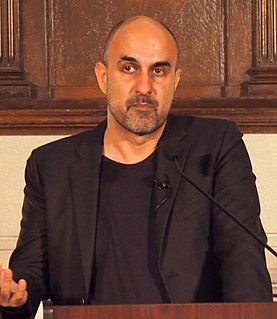A Quote by Rachel Kushner
In writing novels, you have to believe in yourself or there would be no way to sustain it. But you also have to give good evidence regularly for having that faith in self-either with quality goods or with, at least, "good efforts." Working hard will do when inspiration is not forthcoming.
Related Quotes
But what, after all, is faith? It is a state of mind that leads people to believe something - it doesn't matter what - in the total absence of supporting evidence. If there were good supporting evidence then faith would be superfluous, for the evidence would compel us to believe it anyway. It is this that makes the often-parroted claim that 'evolution itself is a matter of faith' so silly. People believe in evolution not because they arbitrarily want to believe it but because of overwhelming, publicly available evidence.
Think for yourself, and believe in yourself. Keep your skeptical antennae tuned in and in good working order at all times. We are free to develop our own hypotheses, which should be based in available evidence. When it comes to faith, have faith in yourself. And don't forget to love, laugh, be kind to each other. Don't take things so seriously, especially yourself. If the universe is a cosmic joke, remember to giggle. And remember to be astonished.
If an opinion contrary to your own makes you angry, that is a sign that you are subsciously aware of having no good reason for thinking as you do. [...] The most savage controversies are those about matters as to which there is no good evidence either way. Persecution is used in theology, not in arithmetic, because in arithmetic there is knowledge, but in theology there is only opinion. So whenever you find yourself getting angry about a difference of opinion, be on your guard; you will probably find, on examination, that your belief is going beyond what the evidence warrants.
Three sorts of goods, Aristotle specified, contribute to happiness: goods of the soul, including moral and intellectual virtues and education; bodily goods, such as strength, good health, beauty, and sound senses; and external goods, such as wealth, friends, good birth, good children, good heredity, good reputation and the like.
Music's always part of my writing. I think all art is interconnected. You can't create or experience one without its influences bleeding into another. In my writing, music's mostly something that feeds my inspiration and mood while I'm writing, but it's also taught me how to score scenes and even novels. The rise and fall of the storyline echoes the flow of a good piece of music.
In good novelistic fashion, the discovery I’ve made is that it’s complicated. I think that’s one of good things about exploring these questions in a non-polemic, fictional way: you get to feel out territory rather than take positions. Through writing this, I can understand the impulse to faith, how people make meaning, how people make community, without having to say, do this, don’t do that, or I believe, I don’t believe.
Do yourself and your family a favor: Decide right now that you will write a self-help book someday. I'm serious. A self-help book is a great way to capture what you think makes a good person, a good life and a good world. It's also a "forever document" that you can pass down to future generations. We need more people sharing positive messages and books with the world. Why not be one of those people?
It's very hard to sustain love, that's for sure. But the more you have your own life and your own self, and the less you give away who you are, the more men are attracted to you. The more desperate you are for a relationship, the worse it is to find a healthy relationship. Because the minute you become one-and-a-half people instead of two, it's a mess. Nobody's happy. Keeping your identity and having your own life and your own self, that's the only way I can make my life and sustain life.






































